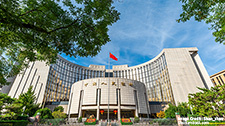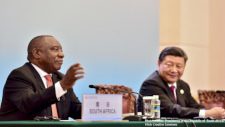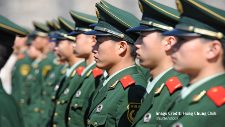Chinese Influence Networks in Finland: A Preliminary Case Study

Matti Puranen
Summary:
- The Communist Party of China has established networks of influence and intelligence in Finland, very similar to those observed in other democracies.
- The networks under survey in this paper have been established by local actors who are not necessarily directly connected to the Chinese party-state structure. Their activities, however, are supervised and guided by top level Communist Party (CCP) organizations, mainly the United Front Work Department and the International Liaison Department, while the Chinese embassy in Helsinki acts as an important intermediary.
- The main objectives of such networks include influencing local perspectives of China and its “core interests”, co-opting local elites to serve Chinese interests, as well as monitoring the activities and sentiments of the local overseas Chinese communities.
- The networks and their operations are managed through an easily deniable presence within legitimate associations (or associations with a legitimate appearance). At the same time, the CCP’s lingering presence in the associations casts a harmful and needless suspicion over the vast majority of overseas Chinese who have nothing to do with the party and its influencing activities.
- Although the activity of the networks in Finland has remained rather mild compared to many other countries, the situation could change following deterioration of diplomatic ties, as recent developments in Sweden and Lithuania have shown. Would such an escalation occur, the established networks could be mobilized for conducting campaigns of a more hostile nature.
- The paper begins by explaining Chinese strategic interests and the main drivers of China’s foreign policy on a global scale, as well as the position of Finland and the role of hybrid operations in this strategy. It then briefly discusses the theoretical framework of “hybrid threats”, loosely applied in the study, and moves into the empirically driven subchapters, which describe the activities of networks associated with the United Front Work Department and the International Liaison Department of the CCP.
- Finally, the paper argues that while the Chinese attempts to establish networks of influence utilize and target certain weaknesses embedded in the open nature of liberal democracies, the same weaknesses also form the strongest defense of democratic societies.
- The paper therefore calls for the strengthening of “democratic deterrence”, as a robust democratic infrastructure forms a strong and adaptive deterrent against such “sub-threshold” threats.
Related Publications
-
Challenging Western Views: Understanding Power and Stability in East Asia; An Interview with DAVID C. KANG
Dr. David C. Kang is Maria Crutcher Professor of International Relations at the University of Southern California. A leading expert in East Asian security, international relations, and political economy, Dr. […]
-
The Economic Leash: China’s Financial Tethers and Global Power Plays
China’s emphasis on Gross Domestic Product (GDP) growth and its integration into global markets have allowed it to wield significant influence internationally. Nonetheless, this focus on rapid expansion has created […]
-
China’s Security Engagement with Africa & The “Global South” Narrative
In recent decades, China has actively sought to position itself as a pivotal partner and emerging leader within the Global South. Despite the lack of clear consensus on the definition […]
-
China’s Quest for Military Technology through Foreign and Civil Sources: Strategic Trends under Xi Jinping and Tactical Adjustments amid Geopolitical Challenges
Over the past decades, the military capabilities of the People’s Republic of China (PRC) have witnessed remarkable developments. The Chinese People’s Liberation Army (PLA) has transformed from a large yet […]
-
To What Extent is China a ‘Security Threat’?
The current international order, led by the United States, is undergoing phenomenal political, economic, and security changes that will decide whether the order will continue as it is, or a […]




